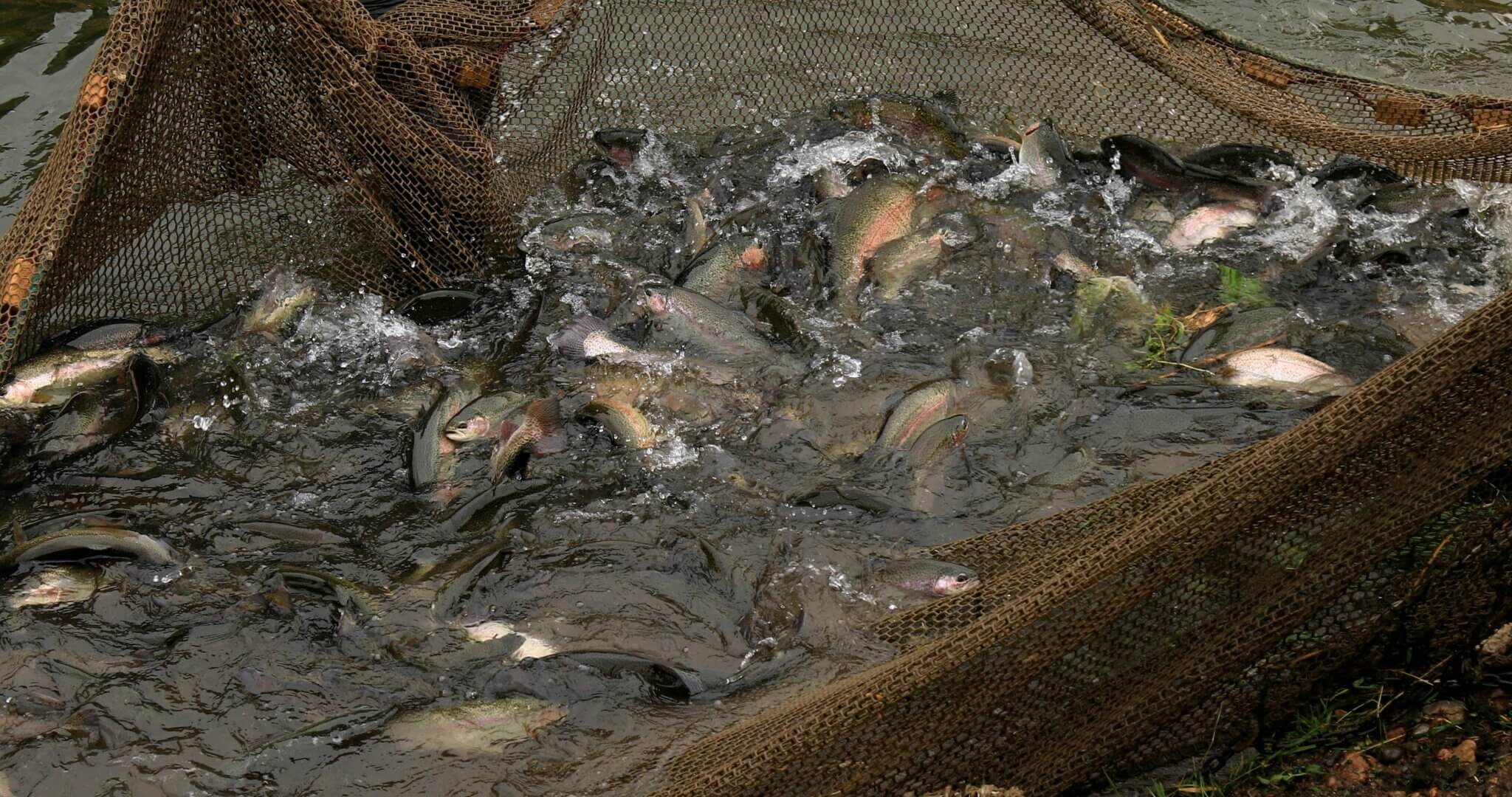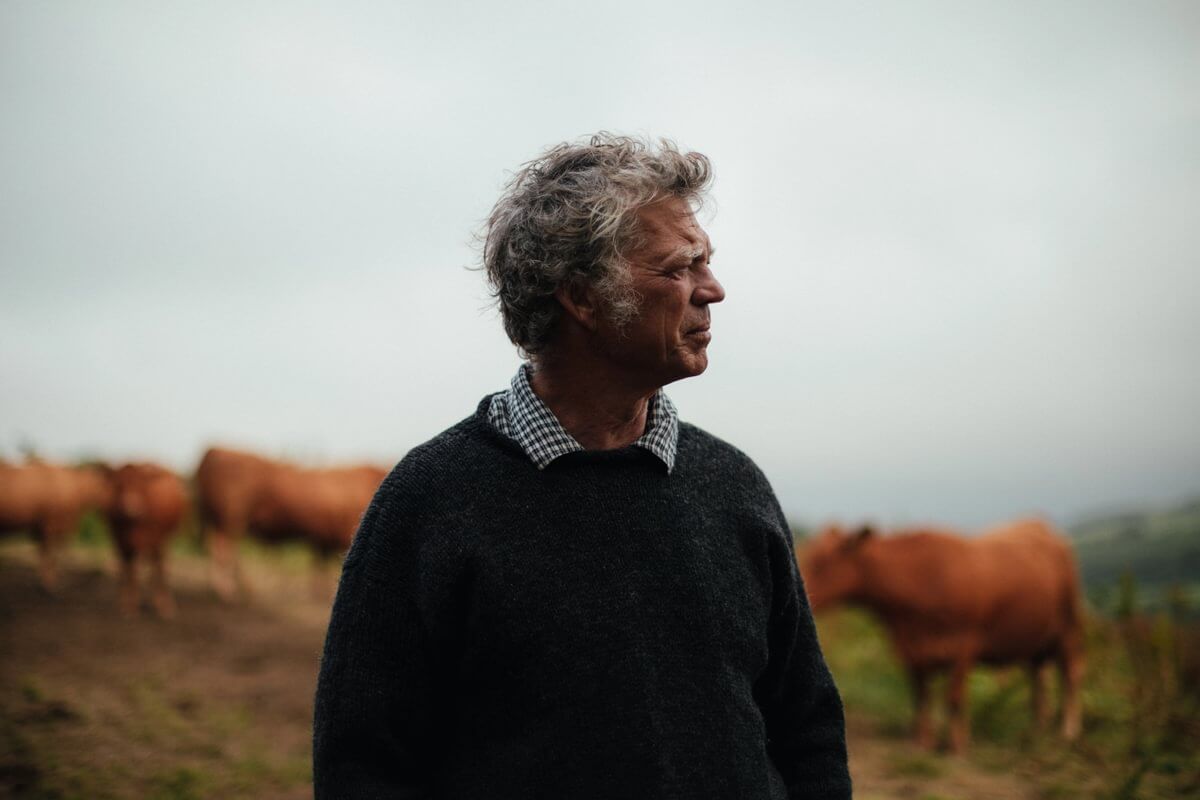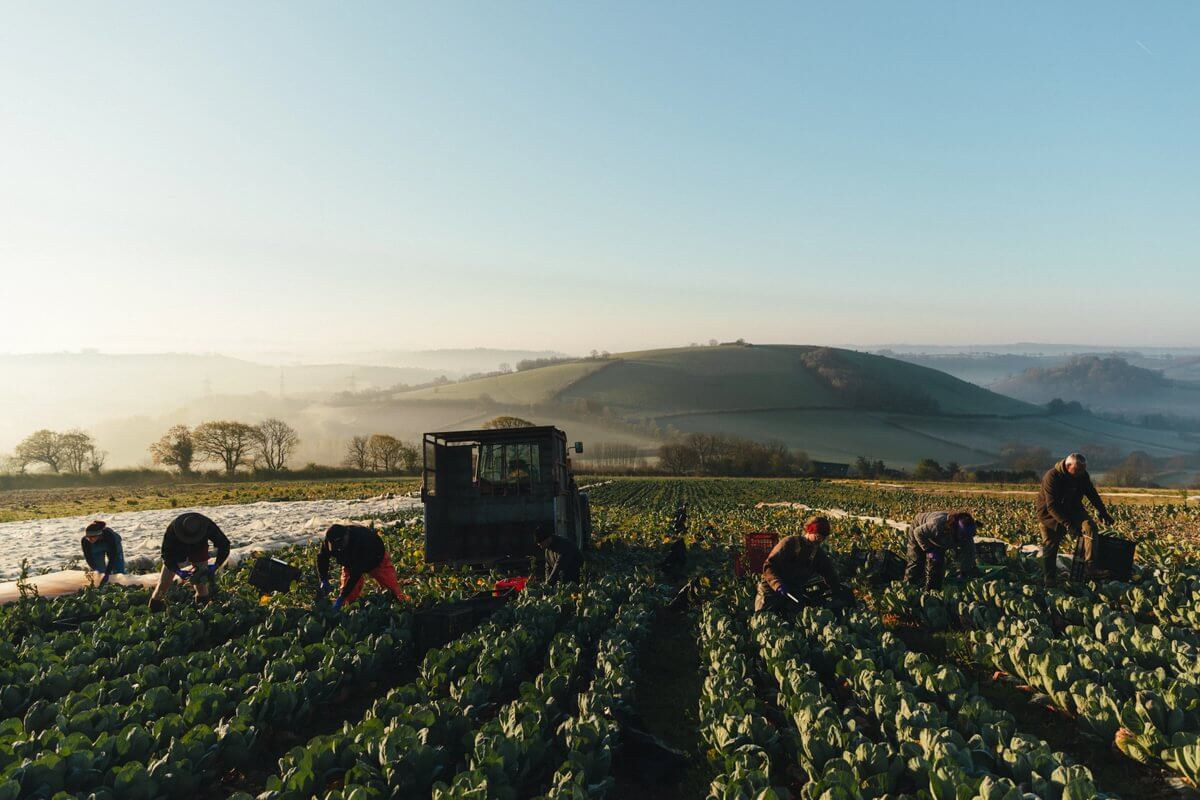This week’s opinion piece is by Amy P. Wilson, a doctoral candidate and research associate at the University of Johannesburg, South Africa. She is also an attorney and the first South African to graduate with a Master’s degree in Animal Law.
Let’s cut to the chase here: aquaculture is not a “sustainable” or “ethical” solution to food insecurity, nor is it an “alternative” to terrestrial animal factory farming or to wild-caught fishing.
In fact, these ‘farming’ systems perpetuate some of the worst harms – towards animals, humans, and the environment. And it’s time to unhook ourselves from these misleading claims and our own problematic perceptions. Better yet – to restrict and regulate it, before it’s too late.
For some time now, governments across the world have been pushing for the harvesting and farming of aquatic beings, with the “Blue Economy” punted as the ‘catch of the day’. Whether it’s the South African government Department of Forestry, Fisheries and Environment (DFFE)’s Operation Phakisa, or the USA’s National Oceanic and Atmospheric Administration U.S. Department of Commerce (NOAA’s) Blue Economy Strategic Plan – every nation around the world seems to have policies that promote aquaculture (think of farmed salmon in Scotland, which keeps posting record sales and keeps expanding).
The rationale? Food security, economic benefits, employment, trade… But what if we’re opening Pandora’s box to release myriad potentially irreversible impacts?
Fast (fish) food
Aquaculture, the farming of aquatic species (plant and animal), is the fastest growing food production sector in the world, having recently surpassed wild-caught fishing. In 2022, global production was at an all-time record high of 130.9 million tonnes. If it is difficult for you to understand what that means in practical terms, you are not alone.
Unlike farmed terrestrial animals, when it comes to determining how many fish or other aquatic creatures we are consuming, killing or impacting, we measure them by the tonnage, and have to rely on guestimates. For wild fish the figure is between 3 billion and 6 billion per day, (between 1.1. – 2.2 trillion per year) and for farmed fish it’s between 211 million and 339 million per day (between 29 billion – 149 billion per year). For shrimps alone, estimates are between 7.6 – 76 trillion shrimps per year (fishing and farming).
Much like their counterparts on land, aquacultural animals are not treated “humanely” and are subjected to extremely cruel and harmful practices, meaning various animal welfare issues arise: mutilations, overcrowding, in-fighting, injuries, diseases, parasites, stress, depression, deformities, suffocation, food withdrawal, lack of enrichment, harmful transportation or cruel slaughter – it’s no fun to be a farmed fish.
Shrimps routinely have their eyestalks removed through crushing, cutting, burning, or tying them off (eyestalk ablation), because it increases spawning and shortens the maturation time for these sentient beings.
To many, the idea of caring about, or mitigating suffering for aquatic beings is laughable. While many care about their pet dog – or even African elephants in the Savanna – we rarely extend this consideration to aquatic beings (except for perhaps whales, dolphins, and polar bears).
There are many reasons, including perceptions about their intelligence, capacities and pain tolerance; the fact that they’re largely invisible; they’re not “like” us (humans and other animals); we don’t understand them; or because we literally “seafood”. Perhaps we’ve fallen for the propaganda through constant assurance of “sustainability” on labels, or carefully curated marketing. Regardless, we appear to have a strong moral disengagement when it comes to aquatic animals.
This is why World Aquatic Animal Day was created to make these issues more visible. Indeed, if we don’t grasp these biases, they’ll be further perpetuated through AI – an increasingly common tool used in aquaculture.
Sentience and sentiment
Furthermore, aquatic animals are systematically excluded from legal protections. In the US Animal Welfare Act, cold-blooded and farmed animals are excluded, meaning aquaculture animals are firmly outside the protection remit. Nor are they included in the Humane Methods of Livestock Slaughter Act; the 28-hour-law; or many state animal cruelty statutes. Even when state laws cover these creatures, and in the face of overwhelming evidence (including undercover investigations), prosecution is rare. The current US administration is further removing legal protections for aquatic beings, including depleted populations as well as aquatic habitats, under the guise of “Restoring American Seafood Competitiveness”.
Notably, it’s not just the species farmed implicated by aquaculture – millions of other animals are exploited and killed in the process. For carnivorous animals (like salmon) – other wild animals need to be either farmed or caught as ‘feed,’ in what is known as ‘blue loss’ (which has far-reaching implications). In other words, fishing is an intricate and essential part of aquaculture – including all the harms that brings (including through bottom trawling). Other animals including insects are also used as feed, with goals to increase this. Due to diseases such as lice, animals including cleaner wrasse fish are removed from the wild and brought into production to eat them, thereby increasing the abovementioned number of animals implicated exponentially.
Even if you don’t connect with the animals impacted there are other reasons not to support aquaculture. From an environmental perspective: it causes (water) pollution; release of antibiotics, pesticides and greenhouse gases; habitat loss and destruction; negatively impacts on ecosystems, wildlife (including threatened and endangered species) and biodiversity, (through escapements, invasions, diseases, inter-breeding and otherwise); is extremely resource intensive, and has various other environmental harms.
If you’re still not convinced, there are potential human health harms to take into account (due to the use of antibiotics, and rise of antimicrobial resistance, contamination, toxicity, microplastics, mercury and rising allergies). Aquaculture is also an extremely high risk job causing many diseases and injuries, and linked with another extremely dangerous job – fishing (not to mention the human rights abuses).
Despite this, there are growing calls to de-regulate the industry in the USA and delegate protections in South Africa. When we should be trying to more strictly regulate the harms and look at this issue from all perspectives.
But there is some hope – thanks to the tireless work of advocates, push back is happening. Several US states have pre-emptively banned octopus farming, with a federal bill in the works, and states including Washington have prohibited commercial finfish net pen aquaculture. Additional efforts include banning certain aquaculture activities in federal waters. Some countries like Norway have included humane slaughter provisions for aquatic animals, ensuring they are at least stunned before they’re killed. In the UK, crabs, octopuses and lobsters are recognised as sentient beings. On misleading “sustainability” claims, there’s increased litigation – even when used on pet food.
In South Africa, we are working to enhance legal protections for wild animals, including aquatic animals. Recently, Animal Law Reform South Africa presented the High Court with arguments about the government’s obligations to consider the well-being of penguins in decision-making for the first time. We’re also working to incorporate wellbeing as part of the Wildlife Well-being Forum, specifically the Task Team on aquaculture and fisheries.
There are increasingly opportunities to replace aquatic animals with aquaculture for plants (like algae and seaweed, which also have climate benefits) and many plant-based seafood products exist.
Bottom line
It’s time to re-examine our own biases and recognise aquatic animals for who they are – sentient beings with intrinsic value – and to more consistently apply our moral caring and legal protections to them, including those who find themselves in factory farms beneath the surface.
Some of these issues will be explored at this year’s Oxford Centre for Animal Ethics Summer School, in “The Ethics of Captivity”, which also includes a focus on aquatic animals and some of the work of the Aquatic Animal Law Project at Washington University Law School.
About Amy P. Wilson
Amy is an attorney and the first South African to graduate with a Master’s degree in Animal Law. She is a dedicated activist on animal, human and environmental matters, working throughout Africa and in the USA on a broad variety of animal protection issues, focusing on the legitimization of animal law as a field, equipping lawyers and the promotion of animal law education and scholarship. She is the co-Founder, Director and former Executive Director of Animal Law Reform South Africa (ALRSA), the first dedicated animal law non-profit in the country, a Lecturer, Doctoral Candidate and Research Associate with the University of Johannesburg (UJ) and a Senior Adjunct Lecturer with the University of the Western Cape (UWC). She is also an Independent Expert with the United Nations in Harmony with Nature Programme and a founding steering committee member of the Global Alliance for the Rights of Nature: Africa Hub. Amy co-taught the first animal law course in South Africa and Africa, and co-teaches courses on Constitutional Law and Nature. She has been published in international peer-reviewed journals and has authored several book chapters. She is currently co-authoring a book on aquatic animal law and co-editing the first animal law book in South Africa.









After reading this I am going to really try give up the wild sockeye salmon that I buy and share with my cat.
Pay more attention to where i can get the nutrients I think i can only get from eating fish occasionally.
Respect and thanks to Amy for the hard work and dedication to remind us all that aquatic life is as sentient as human and other land based animals ♥️
I am seriously considering giving up all fish and seafood, unless it is caught by hand with a rod and line. My son, who is 31 is also doing this.
Watching ‘Ocean’, David Attenborough ‘s film brought bottom trawling to my attention. I had heard of it but seeing it in action is truly upsetting.
I have not eaten salmon for years, due to the awful farming practice, so now it is time for me to go a few steps further. This article is excellent. Thank you.
Excellent article.
Quite an eye opening article. Must be difficult to ‘unknow’ this information once you’ve read it. Really excellent.
Some may have already seen Seaspiracy. Well worth a watch. many thanks for making this information more widely known.
I now avoid most fish altogether, feeling deeply disturbed by horrific fishing practices, but choose Soil Association organic standard farmed salmon in the hope that it is produced to high ethical standards. I wonder whether that hope is also naive and misguided.